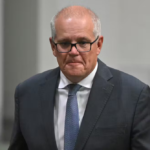Indefinite Deferrals: Planning to Nowhere
In 1998 the then Premier of NSW, Bob Carr, first conceived the NorthWest Rail Link. It was to be integrated into the existing CityRail network; connecting the city’s north, via the exisitng station at Epping, to the growth centre of the west with end of the line at Rouse Hill.
The project was due for completion by 2010.
However after the 1998 state election, which Carr won, the NorthWest Rail Link plans never followed through.
In March of 2008 former Premier Morris Iemma announced his major rail infrastructure plan to tackle the northwest. Construction was proposed of a metro-style subway, the NorthWest Metro; direct from St James in the city to Rouse Hill in the west.
This project was due for completion in 2017.
But when Iemma was unanimously defeated by a caucus vote in September 2008 his successor Nathan Rees, only two months into his Premiership, deferred the project "indefinitely" citing budget constraints.
The original proposal to build the Northwest Rail Link was always going to be the most viable plan. Not least because, rather than requiring the development of an interchange like the NorthWest Metro, it was designed to utilise the existing rail network. But also because the cost would have been significantly less; compare an estimated $4 billion for the NorthWest Rail Link to a $12 billion price tag for the NorthWest Metro scheme.
Plus there were further reasons to proceed with the original proposed NorthWest Rail Link after more than $100 million had been spent on land acquisition; not to mention widespread community support. Many of Australia’s top companies such as Woolworths, ResMed, and Wyeth Australia have established their corporate offices in the northwest.
Like so many other conceived projects before, the NSW Labor government missed a perfect opportunity to address deficiencies in the state’s rail network. For too long the factional forces and intra-government transport agencies have dictated major rail infrastructure, only to roadblock them. NSW has a Labor government too focused with internal tug-of-wars rather than representing the real concerns of the wider electorate.
With a population of over 700,000 the deferral of the NorthWest Rail project has only worsened the situation for residents living in the region: after more than a decade of being promised sufficient rail transportation. North West Sydney has the highest percentage of car ownership in the nationand the lowest proportion of public transport use in all of Sydney.
This all makes for a compelling argument as to why rail infrastructure has been of critical importance for the North West.
In recent years the Epping to Parramatta Rail Link and the SouthWest Rail Link, along with the rehashing of a Bondi Beach Link, and a Northern Beaches Line from Chatswood to Dee Why then onto the Northern Beaches were all promised but never fully realised.
All were indefinitely deferred.
For fourteen years the state Labor government has continued the Carr legacy of pouring state money into building new freeways, motorways and tollways. Although offering a short term solution to a long term congestion, in no way is building more roads a viable way to solve the future problems of Sydney’s transport demands.
Those in the northwest and other parts of Sydney have been crying out for rail infrastructure for decades. So why this obsession with roads when rail transport is vital for the future of Sydney? Why does the Labor government continue to build motorways and tollways like the much touted M7, the M5 expansion, and proposed M4 East when they do little to improve congestion and efficiency on our already stagnate rail network?
The key to the solution of Sydney’s future transport infrastructure is not in roads, but in improving and expanding the existing rail network through a combination of heavy rail and light rail. NSW could have a 21st. Century rail system.
If Barry O’Farrell does win the state election in March 2011 many will be hoping that he can do what Labor has been unable to do: commit to rail infrastructure and deliver it.
Anthony Stokes Hughes is currently undertaking a Master of Media Practice at The University of Sydney. He also holds a Bachelor of Arts-Communication in Public Relations and Organisational Communication from Charles Sturt University. He can be contacted via email a.stokeshughes@bigpond.com















